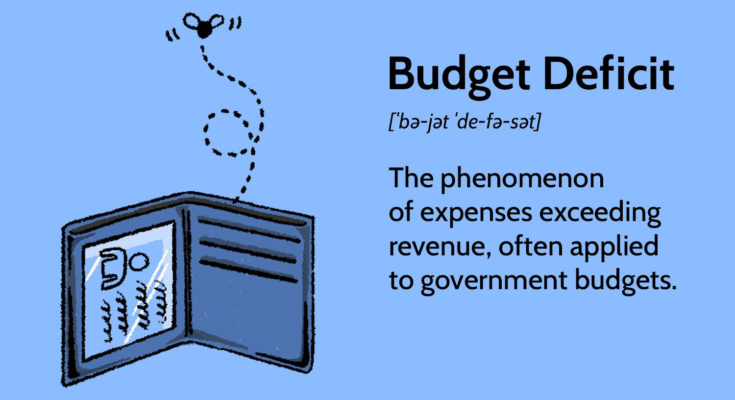Recognizing Budget Deficits: Essential Information
Today we will discuss What is budget deficits Understanding budget deficits is essential for everyone in today’s financial and economic landscape, including people, corporations, and governments. This essay will go into great detail about the idea of budget deficits, giving you a thorough understanding of what they are, how they operate, and how they affect different facets of the economy.
Introduction
Budget deficits are a common subject of conversation in the field of economics since they are so important in determining the global financial environment of nations. We shall dissect budget deficits in this essay, illuminating their types, causes, and consequences as well as their significance to government debt and international economy.
A Budget Deficit: What Is It?
A budget deficit arises when the government spends more money than it takes in within a given fiscal year. Stated differently, it indicates that the government is spending more than it is bringing in from taxes and other sources of revenue.
Reasons for Budget Shortfalls
3.1 Public Expenditure
The main cause of a budget deficit is overspending by the government. Increases in public services, infrastructure improvements, or stimulus plans during recessions can all lead to this.
3.2 Tax Income
A deficit in the budget might also result from insufficient tax revenue. A deficit may result when tax revenue is less than anticipated as a result of tax evasion, a faltering economy, or tax cuts.
3.3 Financial Aspects
An unanticipated financial crisis or a recession are two examples of economic events that might have a big impact on a government’s budget. A contracting economy can result in deficits since it lowers tax revenues and raises the need for government aid.
Budget Deficits Types
4.1 Inadequate Structure
When a government continuously spends more than it takes in, regardless of the state of the economy, a structural deficit results. It implies that changes are necessary to the government’s fiscal policies.
4.2 Cyclical Deficit
Economic cycles are linked to cyclical deficits. Tax revenues fall and government spending on social programs like unemployment benefits rises during economic downturns, creating short-term deficits.
4.3 Revenue Shortfall
When the government’s normal expenses surpass its regular receipts, a revenue shortfall arises. One-time revenue sources and borrowing are not included in this.
Budget Deficits’ Effects
5.1 Expanding Economy
The impact of budget deficits on economic growth can be both favorable and unfavorable. While government expenditure can boost the economy, significant deficits have the potential to drive up inflation and discourage private investment.
5.2 Inflation
Overindulgence in deficit spending can raise the money supply and cause inflation. This may hurt customers by decreasing the currency’s purchasing power.
5.3 Rates of Interest
In addition, since the government bids against the private sector for borrowing money, large deficits may result in higher interest rates. This may affect how much loans cost for both individuals and companies.
Public Debt:
6.1 How Do Budget Deficits and Government Debt Connect?
Government debt is accumulated as a result of budget deficits. A government that continuously runs a deficit has to borrow money to make up the difference, which increases the country’s debt.
6.2 Handling Public Debt
Governments manage their debt in a number of ways, such as by issuing bonds, refinancing, and enacting fiscal policies that lower deficits.
Equilibrium Budgeting
7.1 Measures of Austerity
Governments may balance their budgets and lower deficits by enacting austerity measures like raising taxes or cutting spending.
7.2 Growing Income
Focusing on boosting revenue through enhanced tax collecting techniques and promoting economic expansion is a further strategy.
Global Deficits in the Budget
There are budget deficits in many nations. Similar issues are faced by many countries worldwide, and their budgetary actions can have an effect on the world economy.
Conclusion
To sum up, budget deficits are a complicated yet crucial component of contemporary economics. They may have far-reaching effects on government debt, interest rates, inflation, and economic growth. Making wise financial and public policy decisions requires an understanding of the forms and causes of deficits.
More learn buisness plan

